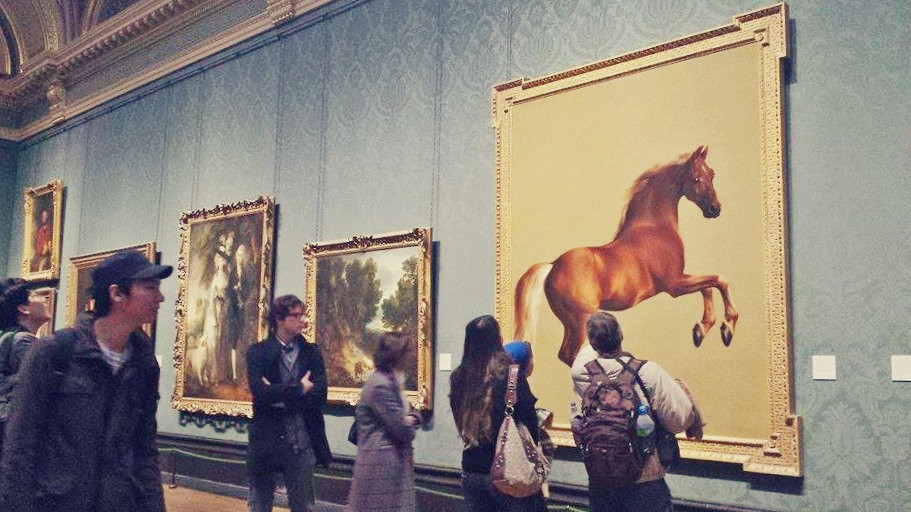
Museums tend to be hotspots in our bucket list; but what do they really mean

At the surface, museums are public spaces that have a tangible record of life and societies: both past and present. On a more personal level, they allow us to have a profound understanding of how civilisations have survived over the years.
Known as the cultural wealth of cities, they establish a concrete connection with yesteryears by providing us with substantiations that allow everyone to experience how things once were and gauge how far we’ve come as a race -- for better or for worse. Museums reveal dynamic changes we have encountered over centuries; possibly even shaping futures to some extent and predicting as to what we might expect in the coming years.
In today’s world, the roles and purposes of museums in society have gained importance due to an increased favourability towards such institutions that provide avenues of entertainment, learning and interactivity. Globally speaking, access to free museums and art galleries will always factor in when determining travel plans for tourists or locals who wish to immerse in long-forgotten stories and step into history, while on a budget. Come rain or shine, places like Victoria and Albert Museum, British Museum, Musée d’Orsay, Natural History Museum, Palace Museum, Louvre, and National Gallery continue to serve as tourist attractions.
Undoubtedly, these spaces have spearheaded collective conversations, ensured civic engagement, given a platform for public interactions and strengthened communities.
On a lighter note, Museum Lates are particularly trendy and ‘go-to’ events in metropolitan cities. With a different theme each month, Lates let you explore museums after hours with a chance to attend the newest exhibitions, talks, contemporary installations, workshops, interactive sessions, comedy shows and performance arts. Entrance is free to the public with only a few activities that require a ticket.
One of the best Lates I’ve ever been to was at the Science Museum in London, which was dedicated to Brazil. There were a plethora of themed activities focusing on the nation’s culture, football, science, and of course a free Samba class. The highlight was partaking in the best silent disco in town underneath stunning space rockets and sipping on free Brazilian Cachaças made from sugarcane juice.
Undoubtedly, traditional museums offer a portal to the past; but today they have become progressive tools of development whilst evoking an array of emotions as one explores several exhibits and time periods under one roof. The fact that museums are deemed as informal learning environments sets a precedent for fostering communities and creating forums for effective dialogue.
It goes without saying that there is something for everyone at any given museum and we are more likely to recall a certain part of history, an odd looking artefact, or an iconic painting if we see it in person rather than skimming through its pictures in a boring textbook or taking a virtual tour online.
Often, I have been told by friends that aimlessly ‘loitering’ around museums categorises me as lacklustre because staring at random inanimate objects is dull and pointless. I disagree. Every ‘random’ visit to a museum, has somehow given me deeper insight into the world and the liberty to hoard a collection of personal memories that will stay with me much longer than any other entertaining excursion I can think of.
The affluence of distinct eras and ethnic heritages makes one appreciative of other cultures and norms. Maybe looking at mundane mementoes from the olden days might just be what you need to recollect that sense of wonder and empathy.
Every experience has surely left me a bit more tolerant and humble towards others.
Something that is possibly missing in our local culture is that intimate bond that nations share with museums in terms of reflecting national pride and heritage. Integrating multiculturalism and development of progressive attitudes towards such institutions is somewhat lacking. When we travel to different countries, museums tend to be hotspots to check off our bucket list for touristy escapades. But the novelty has worn off when it comes to our own local museums. Unfortunately, we don’t associate these activities with reinforcing personal pride or even as a fun pastime.
Zainab Ali, second-year student at the National College of Arts rants, "The general public deems museum visits as uninspiring tours which should strictly be for school trips or educational purposes. Not many people are willing to go to museums or art galleries apart from a niche crowd with particular interests. Kinda sad, no?"
Upon some informal inquires on when they made their last trip to a local museum, people between the age groups of 18-35 in Lahore said they had not visited the Lahore Museum since their last mandatory ‘school trip’.
Recent college graduate Aleeha Javed declares, "I have been to a few museums, but it’s not my thing, yaar. They are fascinating for a minute or two and then I get bored."
The last time budding actress Arzu Fatima went to a museum was four years ago: "Maza toh aya tha bohat! (I had a lot of fun) But I haven’t had the chance to go again because none of my friends likes going there. I might go again someday but that remains to be seen."
Not surprisingly, art students frequented places like the Alhamra Art Center, Fakirkhana Museum, Nairang Art Gallery way more than others. As the majority had fond recollection of what little they remembered from the day they visited the Lahore Museum. Most of them recalled how exquisite the miniature paintings were, some talked about artefacts from Mohenjodaro and Harappa while a few reminisced the haunting ‘Fasting Buddha’ statuette and Islamic murals.
Perhaps, that’s where the beauty lies -- even when the memory seems hazy and distant, the extraordinary legacy of history and museums still remains.